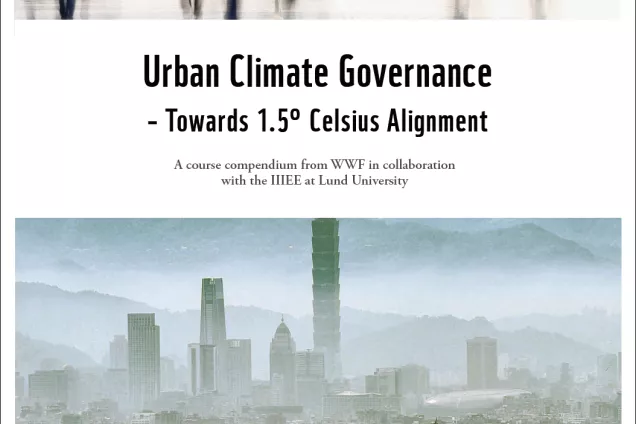Urban Climate Governance towards 1.5° Celsius Alignment
In collaboration with WWF Cities
How can cities work to better align with the 1.5° Celsius goal in accordance with the Paris agreement?
At the 2015 UN Climate Change Conference in Paris, nations around the world reached a landmark agreement to unify in an effort to combat climate change. The main goal of the Paris agreement is to strengthen the global response to the threat of climate change by keeping global temperature rise well below 2°C above pre-industrial levels and preferably to limit the temperature rise even further to 1.5°C. However, global commitments to the Paris Agreement goal of 1.5 degrees have proven insufficient. Most actors in our society realise the need for action, and it is cities that will play a special role. Our cities must lead in the soc-cultural, economic, and technological transformations to meet the 1.5 degree goal. Remember, the global urban population is expected to double by 2050.
This course examines examples of where the transition has already begun, and analyzes the opportunities facing cities in climate change mitigation. It highlights the key concepts in supporting integration of sustainability practices in urban climate governance, the role of urban planning, energy efficiency and energy sufficiency and the influence of urban planning for e.g. urban sprawls and liveability.
Week 1: Here we focus on the crisis facing cities and the urgency and the benefits of cities taking action towards 1.5 °C alignment. We also explain the science of IPCC and WWF's OPCC assessment framework in relation to cities' climate action.
Week 2: Here we explain the different levels and modes of urban climate governance and highlight the interactions between urban planning and key services such as urban sprawls and liveability. We also explore the co-benefits of strategic urban planning and the role of sustainable transportation and mobility. Finally, we discuss the co-benefits of nature-based solutions and ecosystem services.
Week 3: Here we highlight the role that energy systems have. We discuss both energy systems and energy sectors We also describe available types of renewable energies. Finally, it examines the needs and approachesof transitioning towards renewable energy in cities.
Week 4: In this final week we explore the fundamental concepts of energy efficiency and energy sufficiency, as well as their role in climate governance. We then describe the different measures of energy efficiency that are applicable for cities as well as the policies needed to reach energy efficiency in cities.
- In total 25 films and 2 instructors.
- 4 weeks duration, approximately 4 hours per week.
- You may transfer to later sessions to extend the course.


